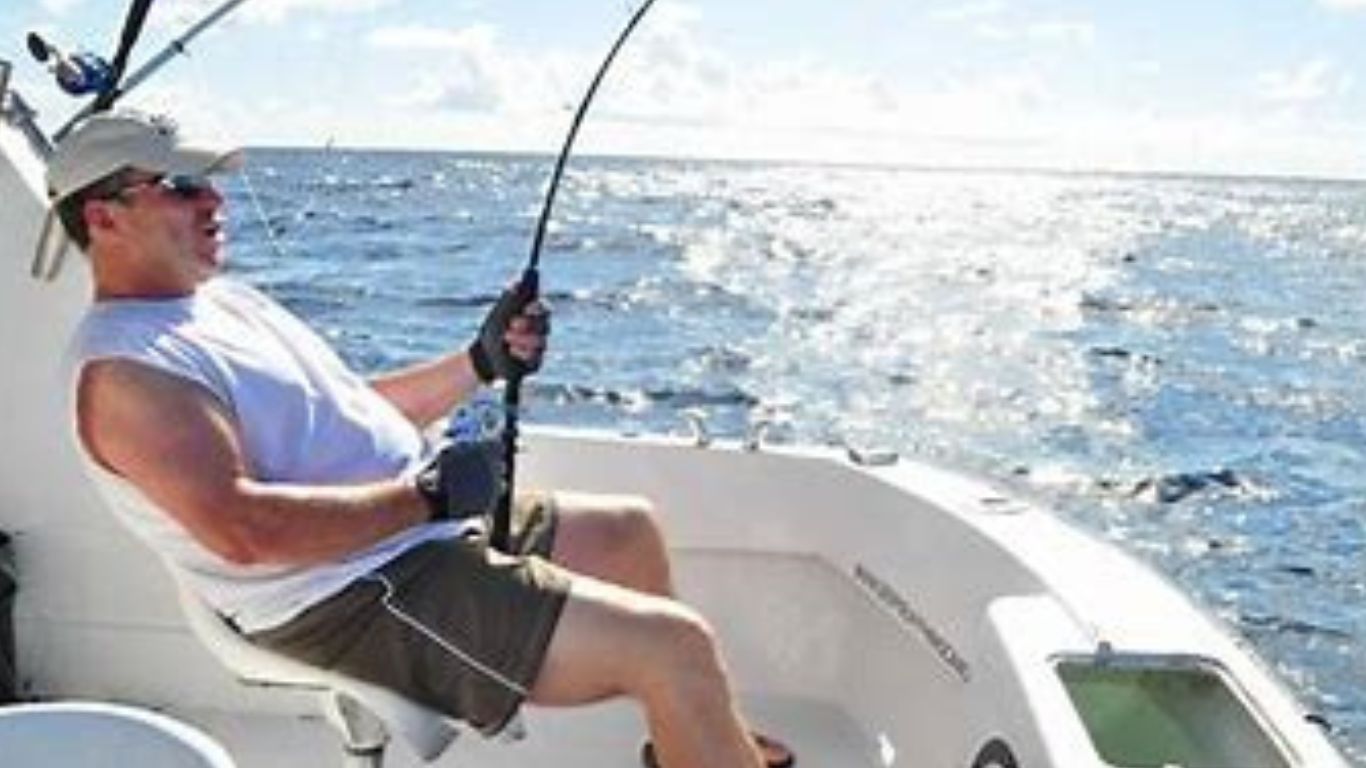Fishing, a timeless activity practiced for thousands of years, has often sparked a debate about whether it can be considered a sport. Some argue it lacks the physical exertion and competitive nature typically associated with sports. In contrast, others contend that it demands skill, strategy, and patience, making it a legitimate sporting endeavor. This article aims to delve into the ongoing discussion surrounding fishing as a sport, exploring the different viewpoints and shedding light on the potential of this ancient pastime.
At first glance, fishing may seem like a leisurely pursuit rather than a sport. It conjures up images of anglers quietly sitting by the water’s edge, waiting patiently for a bite. Unlike traditional sports, where athletes engage in intense physical activities, fishing is calmer and relaxed. However, this leisurely facade belies the true essence of fishing, which involves a combination of skill, knowledge, and technique. Expert anglers spend countless hours studying their prey, meticulously selecting the right gear, and mastering their casting technique. The sport of fishing also demands a deep understanding of the natural environment, such as the behavior of fish, the influence of weather patterns, and the currents of the water. This article seeks to challenge preconceived notions and offer a fresh perspective on this ancient tradition by uncovering the debate and recognizing the sporting potential of fishing.

Fishing
Different Perspectives on Fishing as a Sport
The question of whether fishing can be considered a sport has long been debated, with passionate arguments coming from both sides. While some firmly believe that fishing meets all the criteria of a sport, others argue that it lacks the necessary competitive elements. In this section, we will explore the different perspectives surrounding fishing as a sport, shedding light on the debate and uncovering its sporting potential.
Supporters of fishing as a sport argue that it embodies the essence of competition. They contend that the pursuit of catching fish requires skill, strategy, and physical exertion, similar to other recognized sports. These individuals emphasize that experienced anglers spend countless hours honing their techniques, acquiring knowledge about different fish species, researching the best fishing spots, and perfecting their casting abilities. When approached with dedication and a competitive mindset, they believe fishing can be as physically and mentally demanding as any other sport.
Furthermore, proponents of fishing as a sport highlight the existence of fishing tournaments and competitions. These events attract skilled anglers worldwide who compete against one another to win prestigious titles, prizes, and even cash rewards. They argue that the competitive nature of these tournaments, where participants are evaluated based on factors like the number, size, and variety of fish caught, is undeniable evidence that fishing qualifies as a sport. These contests often employ strict rules and guidelines, further cementing the idea that fishing is a legitimate sport.
On the other hand, critics argue that fishing lacks the necessary competitive elements to be considered a sport. They claim that fishing is more of a hobby or recreational activity that lacks head-to-head competition or direct opposition between participants. These individuals often dismiss fishing as an excuse for relaxation and solitude rather than a test of athleticism or skill.
Critics also argue that fishing can involve long periods of inactivity and waiting, contrary to traditional sports’ intense and active nature. They claim that sitting by the water, patiently waiting for a fish to bite, does not require the same physical exertion as sports like football, tennis, or basketball. They question whether the sporadic excitement when a fish is finally caught is enough to classify fishing as a sport.
Despite these different viewpoints, it’s essential to acknowledge that the definition of sport can be subjective. The perception of what qualifies as a sport may vary depending on cultural, historical, and personal beliefs. While some might view fishing as a sport because of its competitive nature and physical demands, others may see it as a leisure activity.
Ultimately, the debate surrounding fishing as a sport may never reach a unanimous consensus. However, it is essential to recognize that fishing holds vast potential in its sporting elements. The dedication, skill, and competitive spirit demonstrated by anglers, particularly in tournaments, lend credibility to the argument that fishing can be considered a sport.
Defining the Criteria for a Sport
When understanding whether fishing can be classified as a sport, it is essential to establish criteria that define what a sport truly entails. While various factors should be considered, core elements such as physical exertion, competition, skill development, and organized events are typically used to distinguish a sport from other recreational activities. By examining these criteria, we can determine whether fishing meets the requirements to be considered a sport.
1. Physical Exertion:
One of the primary factors to consider in defining a sport is the level of physical exertion involved. Traditionally, sports have been associated with physical activity that demands strength, agility, endurance, or a combination thereof. While fishing may initially appear to be a passive activity, it often requires significant physical effort. Anglers must cast their lines, reel in fish, and navigate diverse terrain. Additionally, long hours on the water can be physically challenging, especially when facing harsh weather conditions. Thus, fishing involves physical exertion, making it a contender for the classification of a sport.
2. Competition:
Another critical characteristic of a sport is the presence of competition. Competitive elements within an activity create an environment where participants strive to outperform one another. Numerous tournaments and contests exist in fishing, ranging from small local events to prestigious international competitions. Anglers compete against each other to catch the most fish, the largest fish, or even specific species within a given time frame. They introduce rules, regulations, and prize incentives, further solidifying fishing’s competitive nature. Thus, competition in fishing is undoubtedly present, suggesting its compatibility as a sport.
3. Skill Development:
Skill development is a crucial aspect of any sport. Participating in a sport requires practice and honing specific techniques and abilities. Fishing is no exception. Successful anglers must acquire various skills such as casting accurately, identifying fish behavior patterns, choosing appropriate bait, and utilizing various fishing techniques. Developing such skills requires dedication and a commitment to improve, which aligns with the ethos of traditional sports. Therefore, fishing can be seen as a sport due to the emphasis on skill development.
4. Organized Events:
The existence of organized events is an essential element in the classification of an activity as a sport. These events provide a platform where participants can showcase their skills, test their abilities against others, and promote the sport. Fishing has a thriving tournament circuit with local, regional, national, and international competitions. These events are meticulously planned, often attracting many participants and spectators. Furthermore, governing bodies and professional organizations are dedicated to overseeing and organizing these events, adding to the credibility of fishing as a sport.
Exploring the Physical Demands of Fishing
When we often think of sports, we envision adrenaline-pumping activities that require immense physical strength, agility, and endurance. While fishing may not fit the traditional mold of a sport, it undeniably demands a great deal of physical effort and skills, making it more physically demanding than commonly perceived.
First and foremost, fishing requires muscle strength and coordination. From casting the fishing line to reeling in a catch, anglers rely on their arms, shoulders, and core muscles to execute these movements effectively. Whether it’s a simple flick of the wrist or a powerful cast, getting the line and bait into the water necessitates a certain level of physical skill and coordination. Furthermore, reeling in a fish, especially a larger one, places tremendous strain on the muscles, as it requires the angler to employ a combination of arm, wrist, and body movements to secure the catch successfully.
In addition to muscle strength, fishing demands balance and stability. Anglers often stand on boats, docks, or the shore, shifting their weight and adjusting their footing to maintain stability while handling fishing equipment. This constant postural adjustment helps improve balance and core stability and engages the leg muscles throughout the fishing trip.
A lesser-known aspect of fishing is its cardiovascular demand on the body. Although fishing may not involve intense running or jumping, it can be a physically taxing activity. Walking to different fishing spots, carrying equipment, and battling the elements contribute to an increased heart rate and improved cardiovascular endurance. Casting and reeling also require repetitive motions, engaging both the upper and lower body, which helps to elevate the heart rate and improve cardiovascular health.
Furthermore, fishing involves spending hours outdoors, often in constantly changing weather conditions. This exposure to the elements adds another dimension to the physical demands of fishing. Be it standing under the scorching sun, enduring heavy rain, or braving solid winds; anglers must adapt and endure these external factors. Consequently, fishing can test one’s endurance, resilience, and mental fortitude to overcome adverse weather conditions, making it a sport that challenges both body and mind.
Moreover, fishing requires skills honed through practice, patience, and knowledge. Casting an accurate line, understanding the behavior of different fish species, and maintaining concentration for extended periods all contribute to the mental and physical demands of fishing. The ability to read the water, predict fish movements, and adapt fishing techniques accordingly engages the mind in a way that mirrors the strategic nature of other sports.
Examining the Strategy and Skill Involved in Fishing
As an age-old activity, fishing has sparked an ongoing debate regarding its status as a sport. Some argue it lacks the physicality and competitive nature typically associated with traditional sports. However, those who have delved into the intricacies of fishing understand that it encompasses a unique set of strategies and requires a remarkable level of skill. Let’s explore the various aspects that highlight the strategy and skill involved in this beloved pastime.
First and foremost, successful fishing heavily relies on an individual’s strategy. When formulating their game plan, anglers must carefully consider many factors, such as weather conditions, water temperature, and the target species. Choosing the right fishing spot is crucial, as different fish species have specific preferences for depth, water flow, and structure. Skilled fishermen analyze the surroundings and employ their knowledge and experience to identify the most promising locations to cast their lines.
Moreover, fishing demands understanding the behavior and feeding patterns of various fish species. Knowledge of the opponent’s strengths and weaknesses is essential, like in any other sport. Anglers need to be familiar with the habits of their target fish, including their preferred baits, breeding seasons, and migration patterns. This expertise allows them to adapt their techniques and increase their chances of a successful catch.
Equally important is the skill required to handle fishing equipment proficiently. Casting a fishing rod accurately and with the proper force is no easy feat. It demands practice, precision, and the ability to read the water and understand its flow dynamics. Skilled anglers possess a keen sense of timing and can expertly cast their lines into the desired areas, avoiding obstacles and tangled lines.
Once a fish bites, an angler’s skill is further tested during the battle between humans and nature. Playing a fish, as it’s often called, requires agility and control. Anglers must skillfully manipulate their fishing rod, reeling in the line while maintaining tension to prevent the fish from escaping. It becomes a delicate dance, an art of balancing the perfect amount of pressure while keeping the line from snapping. This constant struggle between the angler’s skill and the fish’s strength is an exhilarating and captivating aspect of fishing.
Additionally, fishing demands patience, discipline, and an unwavering focus. Waiting for the fish to bite can test mental endurance, particularly during those seemingly uneventful hours when patience wears thin. It’s a sport that teaches perseverance and the ability to remain fully present, appreciating the surrounding nature while awaiting the next opportunity.
Lastly, fishing promotes a profound connection with nature and fosters a sense of environmental responsibility. Responsible anglers understand the importance of conservation and adhere to catch-and-release practices to ensure the sustainability of fish populations. They monitor water quality, actively participate in habitat restoration efforts, and promote ethical fishing practices.
The Competitive Aspect of Fishing Tournaments
When it comes to fishing, many people might associate it with a peaceful and leisurely activity. However, a new realm of competition has emerged in recent years with the rise of fishing tournaments. These events have pitted anglers against each other in intense battles to catch the most extensive and impressive fish. As a result, the competitive aspect of fishing tournaments has not only invigorated the sport but also raised the question of whether fishing can be considered a sport.
Fishing tournaments have become increasingly popular worldwide, attracting professional anglers and amateurs looking to test their skills. These events typically involve participants vying for a monetary prize or trophy, creating a sense of excitement and rivalry. The inherent nature of competition in these tournaments has transformed the perception of fishing from a recreational pastime to a legitimate sport.
One key element that makes fishing tournaments highly competitive is the limited time frame. Participants are generally given a specific period, ranging from a few hours to several days, to catch as many fish as possible. This fleeting opportunity forces anglers to plan their strategies carefully and make quick decisions, adding extra pressure to their pursuit. The race against time ensures that every cast and every movement counts, intensifying the competitive atmosphere.
Not only are participants constrained by time limits, but they also face the challenge of catching the largest and the most prized fish. The size and species of fish eligible for competition are usually predetermined, creating a set of criteria that anglers must meet to qualify for prizes. With this in mind, competitors not only engage in a personal battle with the fish but also an intricate game of strategy and technique to outperform their opponents.
Fishing tournaments often implement specific rules and regulations to foster the competitive spirit further. These guidelines aim to ensure fair play and prevent any advantages gained through unethical practices. For example, catch-and-release policies are frequently enforced, requiring participants to handle their catches carefully and release them back into the water after measurement. These rules level the playing field and encourage responsible fishing practices, promoting sustainability and conservation.
The competitive nature of fishing tournaments has undoubtedly elevated the sport’s appeal, attracting a wider audience and igniting intense rivalries. Like in any other sport, participants develop a competitive mindset, strategizing, analyzing their opponents’ techniques, and continuously improving their skills. The thrill of victory and the pursuit of distinction keeps anglers returning to these tournaments year after year, striving to outdo their previous achievements.
While debates may still circulate about whether fishing can be classified as a traditional sport, the competitive aspect of fishing tournaments undeniably propels it into sportsmanship. Participants face challenges, compete against each other, and push their physical and mental limits to emerge victorious. Fishing tournaments provide a platform for anglers to showcase their skills, challenge themselves, and experience the adrenaline rush associated with sports.
Frequently Asked Questions
Q: Is fishing considered a sport?
A: The definition of sport varies among individuals, but fishing is widely recognized as a sport. Sporting activities typically involve skill, competition, and physical exertion, all of which can be found in fishing. From casting techniques to reeling in a catch, anglers face various challenges and employ strategies to increase their chances of success. Furthermore, fishing tournaments and local, national, and international competitions further attest to its recognition as a sport.
Q: What are the physical aspects of fishing make it a sport?
A: Although fishing may not involve traditional athletic activities like running or jumping, it does require physical exertion and skill. Casting can demand precision, agility, and coordination, especially when targeting specific spots or navigating obstacles. Anglers must also possess the strength and endurance to control the fishing line, reel in heavy fish, or wade through challenging water conditions. Therefore, fishing incorporates various physical aspects contributing to its classification as a sport.
Q: Is fishing a mentally challenging activity?
A: Fishing certainly involves mental challenges that go beyond the physical aspects. Successful anglers must analyze water conditions, understand fish behavior, select the appropriate bait, and tackle accordingly. They must constantly adapt their strategies to changes in weather, seasonality, and the environment, considering factors like water temperature, habitat, and feeding patterns. Additionally, patience and concentration are vital during waiting for a bite. These mental aspects of fishing contribute to its overall appeal as a sport.
Q: What about the competitive aspect of fishing?
A: While fishing can also be a leisurely activity, it has a competitive side that adds a sport-like dimension. Fishing tournaments and competitions have become increasingly popular and attract participants from all over the world. These events often feature various categories based on fish species, equipment, or location, and participants strive to catch the biggest, heaviest, or the most fish within a given timeframe. Competitors rely on their skills, knowledge, and strategies to outperform their opponents and secure victory, adding a thrilling and competitive aspect to the sport.
Q: Can people of all ages and abilities enjoy fishing?
A: Absolutely! Fishing has a broad appeal and can be enjoyed by people of all ages and abilities. It is a versatile activity that can be adapted to different environments, such as freshwater lakes, rivers, oceans, or ice fishing in frozen lakes. Whether practiced from a boat, shore, or specialized fishing platforms, fishing offers an inclusive experience, regardless of physical fitness or mobility. Moreover, the serenity and tranquility accompanying fishing can provide a therapeutic and enjoyable escape, making it accessible and beneficial for various individuals.
Q: How does fishing contribute to conservation efforts?
A: Anglers often play a vital role in preserving and protecting fish populations and their habitats. Many fishing organizations actively promote catch-and-release practices, encouraging anglers to return fish after catching them. This allows the populations to replenish and ensures sustainable fishing opportunities for future generations. Moreover, fishing licenses and permits support conservation initiatives, including habitat restoration, fish stocking programs, and research. By participating in responsible fishing practices and supporting conservation efforts, anglers contribute to aquatic ecosystems’ overall health and preservation.
Conclusion
Fishing tournaments have transformed the perception of fishing from a leisurely pastime to a highly competitive endeavor. The limited time frame, the pursuit of the largest fish, and the implementation of specific rules and regulations all contribute to the intense nature of these events. Whether fishing should be categorized as an actual sport will always be debatable. Still, the competitive aspect of fishing tournaments undoubtedly adds a thrilling dimension to the sport, making it an exciting pursuit for both participants and spectators.
Whether fishing should be considered a sport sparks compelling arguments from both sides. While some argue that fishing lacks the physicality and competitiveness typically associated with traditional sports, others emphasize the skill, strategy, and mental fortitude required to excel. Furthermore, with the existence of competitive fishing events and the recognition of fishing as a sport by reputable organizations, it is evident that it holds significant sporting potential. Ultimately, whether one considers fishing a sport or not may be subjective, but it is undeniable that fishing encompasses elements that resonate with many people’s definition of a sport. So, whether you throw your line in the water to relax and connect with nature or strive for the thrill of competition, fishing can undoubtedly offer a rewarding and fulfilling experience.









